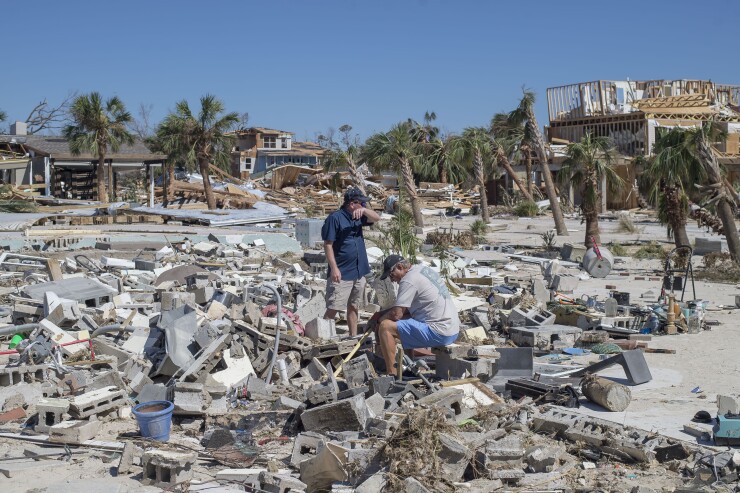The Securities and Exchange Commission and the Internal Revenue Service are offering regulatory relief and assistance for victims of Hurricane Michael, as well as extending tax-filing deadlines and making it easier to provide low-income housing for people affected by the devastating storm.
Hurricane Michael devastated the Florida Panhandle, particularly the cities of Mexico Beach and Panama City, Florida. It also did damage in other states, including Georgia, even after being downgraded to a tropical storm.
Last week, the IRS announced that it was extending the Oct. 15, 2018, tax extension deadline until Feb. 28, 2019, for Hurricane Michael victims (see

The SEC said it’s providing regulatory relief to accountants, public companies, investment companies, transfer agents, municipal advisors, and others affected by the hurricane. The SEC issued an
The IRS also offered temporary relief from some requirements of the Tax Code to make it easier for owners and operators of low-income housing projects in the U.S. and U.S. territories to provide temporary emergency housing to people who were displaced from their main residences, regardless of income, by Hurricane Michael as well as the earlier Hurricane Florence that devastated the Carolinas and parts of Virginia in September.
The special relief was spelled out in two revenue procedures issued back in 2014 in response to earlier disasters,
That means they can offer temporary emergency housing to displaced people who lived in a county or other local jurisdiction designated for individual assistance by the Federal Emergency Management Agency. Currently, that includes parts of Florida, Georgia, North Carolina, South Carolina and Virginia, though FEMA may add other locations in the future. Upon approval, emergency housing can be provided for up to a year after the close of the month in which the major disaster was declared by the president.
On Tuesday, the IRS also extended the tax-filing deadline relief it granted last week to victims of Hurricane Michael to additional counties hit by both Hurricanes Michael and Florence, adding other parts of Florida, Georgia, North Carolina and Virginia, so they will have until the end of February to file their 2017 taxes.
“Hurricane Michael was a devastating storm for people in many different areas,” IRS Commissioner Chuck Rettig said in a statement. “During this difficult time, hurricane victims should be completely focused on their families, their safety and rebuilding their lives. These people shouldn’t have the added stress of worrying about Monday’s tax deadline. The IRS is providing extensions of the Oct. 15 deadlines and expanding relief for taxpayers affected by the hurricane.”
In response to the FEMA declarations, the IRS has updated the information on the